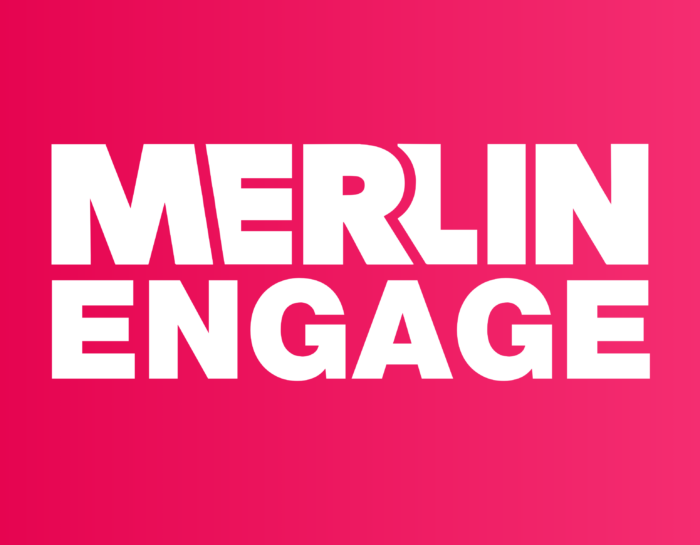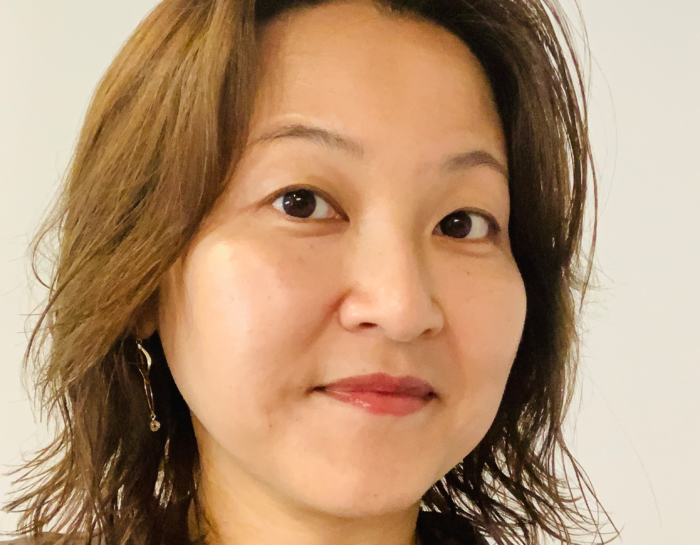
A Decade of Disruption: Martin Mills Reflects on Merlin’s Impact
Merlin’s Executive Interview Series is a monthly series featuring executives from across Merlin’s dynamic and diverse worldwide membership, discussing some of the most pressing topics, developments, and innovations in independent music today. This month’s special edition features Martin Mills, Founder and Chairman of Beggars Group and Founder and former Chairperson of Merlin, in conversation with Alan Light.
“When we came up with the idea for Merlin,” says Martin Mills, “we went to the IMPALA Board with a presentation and said, ‘We think we can create an entity that will solve our digital licensing problems,’ and the board bought into it. The ambition for Merlin was tiny compared to what it turned out to be. We were aiming to turn over 10 million euros in a year—and in twelve years, it was turning over a billion. That’s pretty impressive and unprecedented growth.”
Last year, Merlin, the independents’ digital music licensing partner, celebrated its 15th anniversary. Since its founding, Merlin has grown to represent 15% of the global recorded music market share, with a membership made up of independent record labels, distributors, label services companies, and other rightsholders from 70+ countries around the world.
For Mills, Merlin – where he also served as Chairperson from 2011 to 2017 – is a significant part of a career spent defending and advancing the interests of the independent music community. After graduating from university, Mills worked for the Office of Population, Censuses and Surveys but knew he was seeking something else. He took a job at a second hand record shop. He and a friend, Nick Austin, started a mobile disco named after the Rolling Stones’ album Beggars Banquet. Eventually, they opened their own store selling new and used records, which expanded to six shops across London.
The punk scene was just taking off and rewriting the rules of the music business. Mills began promoting concerts and then founded a label under the Beggars Banquet name. Over time, the company merged with other like-minded labels. The Beggars Group, of which Mills remains the Chairman, includes 4AD, Matador, Rough Trade, XL, and Young.
In 1999 he helped found the Association of Independent Music in the UK, in 2000 it was IMPALA in Europe, A2IM in the U.S., and then the Worldwide Independent Network (WIN). In 2008, the same year he led the establishment of Merlin, he was also awarded an MBE.
As the industry and technology have changed, Merlin has continually evolved to help independent music rightsholders compete on a level playing field. It has negotiated deals for its members with partners like Apple, Deezer, Meta, Spotify, YouTube, and more than three dozen other innovative platforms around the world, such as Canva, Snap, Supernatural, and Twitch, introducing and representing independent music into social media, fitness apps and gaming.
Regardless of the revolutions in media, Mills maintains that the creative role—the opportunities and ambitions for independent music—never changes. “If you look at musical trends and how they emerge,” he says, “for the last 75 years almost without exception, new music comes out of the independent world. As we celebrated the 50th anniversary of hip-hop, the early days of hip-hop were all artists coming from independents.
Alan Light (AL): What did you see happening in 2008 that led to Merlin’s creation?
Martin Mills (MM): What really caused the realization for me was the switch from downloads to streaming. With downloads, as a label you can set your own wholesale price and sell whatever you’ve got at that price. What other people are doing doesn’t make any difference. Whereas with streaming, the DSPs had a royalty pie which was 100%, and if someone else is getting more than their share of the pie, then you’re potentially getting less than your share.
In the early days of streaming deals, some of the majors were doing deals for more than their slice of the pie. If they were 38% in the marketplace, they were saying, “Because we are who we are, we want 45%,” and that was effectively coming out of the independents’ share. Some of them were including distributed label shares as their own. So we were going to some DSPs to do deals and they were saying, “Well, we can’t give you your full share because some of it’s already gone.” That was a clear, huge danger for us. You can’t deal with a threat like that individually, because on a one-by-one basis, we were going to get buried every time. So we decided that we needed a solution to level the playing field.
AL: Some industry changes could be anticipated, while others were impossible to see coming. How were you able to figure out and evolve what Merlin needed to do to respond to these market forces?
MM: Fundamentally, we needed to bring interests together and create value collectively. We were very lucky that pretty much the first deal we did was with Spotify. I remember Charles [Caldas, former Merlin CEO] coming in and saying, “Great news, we got Spotify.” I’d never heard of them! Spotify wanted to work with Merlin because they saw us as being an asset to them—as it should be, because Merlin allows a DSP to access a very fragmented label marketplace with one deal rather than three or four hundred.
AL: Did the independent community initially understand that? Or was it tough to line up these independent-minded people into some way that you could work together?
MM: It came together pretty fast because we’d already had some good examples early on. When the Association of Independent Music (AIM) first started, it was to defend independents’ interests in the licensing of MTV. We fought that battle and we won that battle. That was the first proof that a Merlin could make a difference.
Then AIM succeeded in getting a new DSP to get rid of the differential between what they were paying the majors, and what they were paying to indies. And the launch of A2IM produced a similar result in the USA. So we had proved that we could make our members more money by working together.
AL: How does your work on the Beggars side and the Merlin side inform each other?
MM: A lot of what we do is about balance. The intention of Merlin was to intervene where fair deals were not getting done. It was not meant to be the solution to everyone’s deal-making problems. It was meant to be flexible, not be an aggregator nor be a collecting society in itself, and it was not going to be a threat to those entities—because we needed distributors and aggregators as Merlin members.
That’s always been an interesting dynamic, keeping rights owners and distributors under the same roof with both feeling their interests are being served. The independent community is a mix of different interests and keeping it all together has always been a challenge.
AL: I imagine that’s not just because of the different tasks, but because of the kind of people who are drawn to independent operations.
MM: That’s very true.
AL: Has the shift to streaming been an opportunity to level the playing field for independents?
MM: It’s been quite democratizing. The DSPs—who are our new retailers, if you like— are much more approachable than the old ones. The people who ran Target and HMV and Tower were almost completely unknown to independents because there was always a distributor in between us and them.
When the DSPs arrived in our world, they were people like Eddy Cue and Oliver Schusser from Apple, Stefan Blom from Spotify, Steve Boom from Amazon, and Robert Kyncl and then Lyor Cohen from YouTube, personally reaching out, actually coming to our offices. That was a degree of communication and mutual dependence that was really, really refreshing. It got rid of the old gatekeepers and allowed a whole new category of label to walk through the door and deal directly with the retailer, which in the physical world was not possible. Once we got DSPs to appreciate that an independent copyright was of exactly the same value as a major copyright, the access to them became pretty on par with the majors.
Every DSP has different characteristics. Apple, for example, has always been particularly music-oriented. You can talk to people at Apple about music just the same as another independent label. Spotify’s genesis makes them unique. They all have their pluses and minuses in their ways of working, but, generally speaking, it’s turned out to be quite favourable to us.
AL: Is there anything that’s created new or additional challenges, or just the same questions of scale and leverage?
MM: We were pretty far-sighted when we set up Merlin, but there were some things which we didn’t quite predict. One thing we said is that it’s got to be very economical, it can’t cost 10% or 15% to run, like a collecting society. It’s got to be very low single figures in terms of the admin fee percentage. We achieved that. Only a very, very skinny slice of the income should go to fund the operations of Merlin.
In a traditional world, a distributor gets 10%, 15% or 20% of turnover, whatever, and here we were creating an opportunity to do business for a tenth of that. And of course, lots of people turned up on our doorstep that we weren’t expecting, in addition to the premium indie labels that were our core. And now our world is occupied not just by what you would traditionally call an independent label, but by artist services companies and people whose job is delivery rather than the creation of value, and who don’t necessarily have the same interests, or business philosophy.
So we’ve ended up with more of a mixed bag of members than we anticipated, and that creates its own tensions.
That’s very material with regard to the current debate about whether every track should be paid the same. It’s always been our guiding principle that it should. I recall a crunch meeting with another big DSP at Midem. I said very little, but just before the end of the meeting, I asked them if they agreed that an indie copyright was worth every cent as much as a major one, and then I walked out. They eventually agreed the point.
And although it feels like a slippery slope, now are we so sure? There’s general agreement that rain sounds should not have the same value as music – but what about Brian Eno recreating rain sounds? What about a singer singing a song about rain that no one has ever listened to? Merlin’s long tail aggregator members would I’m sure still argue that a track is a track, but for labels? I suspect we now think a line needs to be drawn.
But where, how, and by whom? A threshold system seems flawed to me, and ill-suited to times of financial deprivation and need. A system of DSPs charging a small flat fee for delivery, and maybe also storage, seems to me would result in self-regulation, and avoid the need to make judgements.
AL: How do you look at the next five years for independents?
MM: We’ve obviously got to deal with AI and what that becomes—that’s a work in progress. There’s a lot of attention now on distribution of revenues coming out of DSPs. That’s going to be an ongoing process, as well, and we all have opinions on that. Whether or not it’s right to be paying some tracks a different rate, how you pay out a track for an artist, is obviously a challenge. This is the new battlefield, after the old slice-of-the-pie one, the new mechanism through which the major rights owners attempt to increase their share.
And once again that increase in share has to come at someone’s expense. Morally, I find that hard to justify and defend. Commercially, that might or might not come at the expense of labels like us. It probably will come at the expense of the long tail aggregators. Merlin needs to find a position on that.
What is becoming most evident to me right now, though, is that the marketplace is changing, perhaps more quickly than we thought—in terms of the competitiveness and growth of the various majors. Right now, I don’t think the prospect of abusive competition from Sony or Warner is going to keep anyone awake at night, but Universal’s EMI acquisition is now paying serious dividends for them. There’s only one way for them, and that’s up. They’re dominant, and are apparently proud to admit it. And, as market leaders, very smart at it. Which is dangerous. We’ve been living in an oligopolistic marketplace for a decade or so, and I think that oligopolistic marketplace is rapidly becoming a monopolistic one. And that’s going to present its own challenges, especially for the small guys. It’s going to make Merlin even more important. We need to think about how to address that fundamental, maybe even existential, challenge.
AL: A lot of opportunities are coming from different countries, different continents, and different markets. Is that something that was there all along that we’re only now becoming aware of, or is it something that new technology has empowered in a different way?
MM: It’s largely technology-driven. The barriers from the physical marketplace don’t exist in the same way. Actually getting a piece of vinyl to a record shop in Tanzania or Tibet, to be there when somebody wanted to buy it—the chances of that actually working is remote. The arrival of technology and digital services, with instant access, has been transformative and is a very important part of our business. At Beggars, we’ve just hired our first employee in South Korea. We’d never have considered doing that even a few years ago.
AL: How much of a hand do you still keep on the music side?
MM: A close hand. But it’s been a long time since I was the person that was deciding who we were going to sign, and rightly so. That’s done by our label partners. We’re discovering great and exciting music all the time. I’m always involved in how we interact with it and what we choose, but it’s not me making decisions these days. Nor should it be.
AL: Anything that you hear that gets your pulse racing?
MM: There’s a tremendous number of talented women in the singer-songwriter space. We have Big Thief, who I think are one of the greatest bands in the world right now and who could be as big as they want to be. Working with an artist with that degree of uniqueness and talent gets you out of bed smiling every Monday morning.
AL: With all you’ve learned, experienced, and witnessed, what would you pass on to the next generation of independent label founders?
MM: Don’t do it for the money. Don’t expect to get rich. Enjoy it. Money should be a byproduct of doing it well.
Over the years, there’s been a predictable life cycle of independents who started out with nothing and made something, and then got into financial difficulties and ended up with a sale and disappearance into some major group. I haven’t seen that happening as much over the last 10 years, and I think that’s really encouraging.
The marketplace makes it more viable for independents to survive, grow and thrive. I’m happy to see that people are still doing it and carrying on, and not just taking the money.
AL: What do you learn from younger executives and people who have grown up in a digital universe?
MM: The principal lesson is to make sure we employ the right people and let them get on with it. When I partnered with Richard Russell and XL, the learning was very much a two-way street. He’s a generation younger than me and I’ve learned a huge amount from him. We both in turn are now learning from people a generation younger. You have to be open to that and allow people to deploy their talents. It doesn’t necessarily mean you need to replicate them yourself.
AL: In your years on the Merlin Board, what are you proudest of?
MM: They were the days when I was Chairperson. Probably the answer is the deals that Merlin has done with some of the big DSPs. With each of them, there’s always been a drama. There was the period when Spotify decided they needed to increase their margins, in 2015-2016, and they went on a mission to convince everyone that that was what was necessary for the growth of the marketplace and the success of the company, and of their IPO prospects. Spotify was slugging it out with all its suppliers, and I recall having a Sunday brunch at the end of that process with Stefan under the Highline, and we were like prize fighters at the end of a long bout, dead on our feet.
AL: So you feel like these have worked out in ways that feel fair all the way around, and you feel optimistic that we can still get to that.
Yes. Obviously the model of the streaming deal is now a pretty well-oiled machine, and we all know what it entails, subject to dividing the returns. But when a service comes on the scene, that creates a whole new set of challenges in terms of how that’s monetized. One day, we’ll all get a proper handle on how to get the right amount out of that partner, and then there’ll be something else.
But the challenges of deal-making in the digital world, and what Merlin does for its members, and what we learn and what people teach us, is continually fascinating. It is already a lifetime’s fun working with new music. But with the ground rules changing all the time, it makes it doubly exciting.


